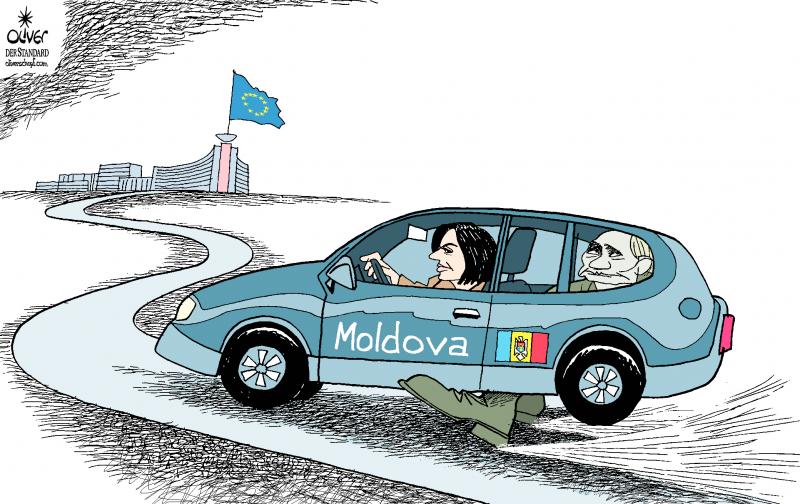There was a slight scare for Moldova's European aspirations on 20 October, when two crucial elections for the future of the country took place: the presidential election and a referendum on integration with the European Union.
Outgoing President Maia Sandu (Action and Solidarity Party, centre-right) came out on top in the first round of the presidential election, with 42.31 percent of the vote. The pro-European candidate, who was up against eleven other candidates, will have to face Alexander Stoianoglo (pro-Russian opposition, 26.7 percent of the vote) in a difficult second round on 3 November.
In the referendum on European integration, the Yes side won by a hair's breadth, with 50.41 percent of the vote, largely due to the involvement of the large, largely pro-European Moldovan diaspora.
The surprisingly close contest - polls had predicted a slightly bigger lead for the Yes side - was partly explained by the Moldovan authorities' accusations that Russia was trying to meddle in the elections in favour of the pro-Kremlin opposition. Although these attacks have not yet been backed up by evidence, they echo the many investigations of recent months that have revealed a vast network of pro-Russian interference within the country.
Do you like our work?
Help multilingual European journalism to thrive, without ads or paywalls. Your one-off or regular support will keep our newsroom independent. Thank you!
















